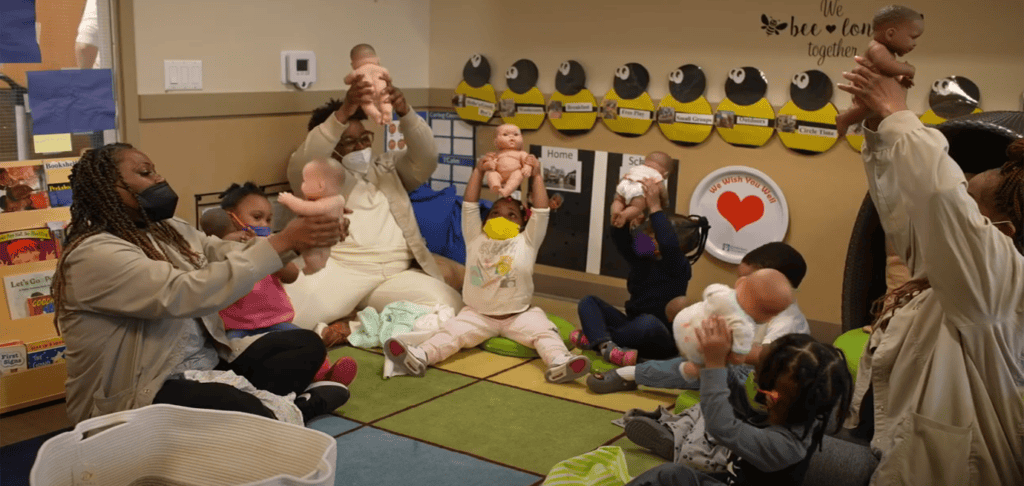From birth to age five, a child’s development depends on close, healthy relationships with the adults in their life, such as parents, teachers and other caregivers. These early adult-child interactions not only kickstart children’s social and emotional learning, but also set the stage for future developmental outcomes.
At Educare Chicago, teachers are turning to a hands-on play program called Baby Doll Circle Time to do just that: foster meaningful relationships, strengthen children’s attachment, increase their ability to be resilient, and support social emotional competency skills.
Building Compassion and Connection in the Classroom
“Baby Doll Circle Time came about during the pandemic, when we noticed children were not playing like they normally would and language was declining,” says Educare Chicago teacher Claudia Cattage on this year’s Red Nose Day episode of The Kelly Clarkson Show. “So, our director did some research and found the Baby Doll Circle Time approach. Children use doll babies to learn about expressing their emotions and putting names and words to what they’re feeling.”
In this Conscious Discipline curriculum, teachers lead young children in activities such as Peek-a-boo and I Love You Rituals that are designed to practice compassion and build connection. As children play with their dolls, they relive and strengthen the attachments they have with their teachers, caregivers and parents.
“It’s really made a difference because [the kids] know that the care they’re giving to the dolls, we’ll give them that same care,” says Ms. Cattage. “It’s important that children feel safe, loved, heard and understood – and Baby Doll Circle Time does that.”
The Importance of Self-Regulation Skills
Strong adult-child relationships bolster children’s social-emotional development, a key part of which is self-regulation. Self-regulation skills – the internal capacities that help children manage their thoughts, feelings and behaviors – underlie every area of social-emotional learning. Many studies have shown that stronger abilities to regulate emotions early in life are associated with positive developmental outcomes like school readiness and later academic success.
Because of how much a child’s brain changes in the first five years of life, early childhood is an ideal time to enhance self-regulation and improve social-emotional skills. Baby Doll Circle Time is one example of an approach or intervention that helps strengthen children’s self-regulation: when adults model effective regulation strategies, engage children in activities that require self-monitoring, and teach children the language to understand their emotions.
Learn more about self-regulation at Educare in our newest Educare Insights brief.
